Immersion into covenant as a Child of God
Notes on theory and practice of relinquishing a life of self-will and accepting divine will
If you had told me even a year or two ago that I would be reading Bible verses and witnessing the outdoors immersion of men and women into covenant in a Scottish torrent, then I would have begun to wonder what caused me to abandon my strict orthodox hedonism. I have been on a winding journey through telecoms scientist, “conspiracy” truther, and tangles with the legal system. This has provided experiences that have triggered me to reframe life through a spiritual lens. They all lead to the same conclusion: we are not the first to confront delusion, tyranny, or chaos, and the resolution is found in existing texts and proven wisdom.
The challenge is to overcome our spiritual indoctrination, deprogram ourselves from our worldly culture, and heal the traumas that prevent us from growing. This is in the context where our religious bodies have delivered rotten fruit that is toxic, evidenced by their complicity in Satanic rituals and genocide during Covid. It forces us to step back and return to first principles, using our own critical thinking skills and discernment. We are no longer bamboozled by the purported authority of a PhD in theology: the spirit of truth can be absent in even the most learned Bible scholar, who labours under their delusion of grandeur through veneration of their own mind.
These notes are work in progress, and will likely contradict the church doctrine of many readers. I am making sense of the whole endeavour of immersion, and remain in convalescence from my own spiritual abuse earlier in life. I can only participate in a transition like this with my whole heart committed to it, and no reservations. This writeup is part of my own effort to establish the spiritual “safety case”, and purge any remaining dogmatic religious spirit that opposes eternal truth. I do not claim to be correct, only curious. Make of this what you will; if the provocation is uncomfortable, take that up with your own conscience and congregation.
A copy of the notes is here as a Word document — feel free to fiddle with them or deconstruct them as you see fit for personal use.
The spiritual need for immersion
Why are you not already a Child of God?
Some claim we don’t need to be immersed, as we are already a “Child of God” by our very existence. This is in direct contradiction to scripture, and denies free will. It places the most heinous child torturer on the same footing as a saintly martyr, which contradicts the essence of moral distinctions. It also ignores the essential point and purpose of immersion. We have a choice over how we are to be governed: by man’s law, or through faith in “the way”. A baby has the potential to become a Child of God, but it cannot be realised until mature, demanding a symbolic act to exercise the option.
What is sin in this context?
Sin can be understood as a deliberate opposition to divine will, rooted in an awareness of selfish or wrongful actions, rather than being limited to specific vices. Sin is wilfully choosing either the “left-hand path” (degeneracy), or the right-hand path (self-righteousness), in preference to the “narrow way” between them. When we sin, we align to a consciousness that ultimately leads to death; divine will is that which is in harmony with the patterns of life that sustain themselves towards eternity — like rivers down mountainsides.
What is the relationship of immersion to sin?
Immersion symbolises a transition away from living in self-will (i.e. a sinful existence). Recognising we are ultimately damned under self-will, we crucify that ego identity and put it to death, then establish a new life in divine will. This frees us from enslavement to the vices of the flesh, the narrow pursuit of material success, and reward via man’s approval.
By operating in divine will as a Child of God, and rejecting sin, we “go with the natural flow” of life, and not across or against it. You will bash yourself into fewer rocks if you align to the currents of life. At times those channels are artificially manipulated to cause injury, so you may have to swim against them to restore the natural harmony and do what is righteous.
Why get immersed as an adult?
We are born innocent. In infancy, we have not had a chance to experience free will, nor the consequences of temptation, nor the lasting harm of our sin. A newborn is unable to express free will in any spiritual matter of consequence, and has no concept of sin. “Original sin” accuses the newborn of going against divine will — a form of false witness. Immersion into covenant only makes full sense at or after the coming of age.
Why “immersion” rather than “baptism”?
The term “baptism” is overloaded with multiple meanings, which include the recognition of the arrival of a new child into the world, the induction of a new member into a “religious social club”, and the Biblical acceptance of the promise of the covenant. Stripping the language back to its essence allows us to be clear and specific about which purpose and form we are describing.
The Greek “baptizo” is closer to immersion than contemporary “Churchianity” rituals of sprinkling or pouring water. Some sects that are not strictly Christian take on the word “baptism”, acquiring the title but not the status; others don’t even take the title. Hence the word “baptism” is confusing, and preferably avoided for more direct descriptive language.
The symbolism of immersion in living water
Why total physical immersion in water?
Immersion of the whole body under water is “trivially” outside of ordinary life, even bathing for cleanliness, but is not a “work” of itself. Nothing in the material world is transformed by it — the “work” of the flow is done by God. There is no “right” or “wrong” way of doing it because the requirement is minimalised to an elementary act, it being universally accessible with moderate effort.
Full-body immersion is necessary because it symbolises a return to a pre-birth state, akin to being in the womb, ‘underwater.’ This act represents the spirit's renewal and a fresh start, much like the beginning of life itself. It is also symbolic of a death, burial, and resurrection; when you lower a coffin into a grave you bury it completely, not sprinkle soil on it like a decoration from nature. Only by doing something different to normal do you bear witness to how your intent has changed.
Why does it have to be living water?
Living water is flowing, and all life is flow; stagnation is death. The “Constructal Law” describes how flows (like rivers) like to construct better flows. In the case of a river, natural levees, formed during the overflow of a flood, speed waters to the sea; but that more rapid arrival of yet more silt-laden water, channelled via even higher banks, supplies the material to co-construct larger levees via greater flood events. In this manner, there is a balancing force of growing connected flows that opposes thermodynamic decay. Water also has memory of information, and living water is passing in the natural cycle, so carries that vibe of the cycle of life.
By immersing ourselves into flowing water that is alive, we are letting something go downstream, the last act of our own self-will. Living water dilutes away our sin both physically (as a spiritual information medium) and symbolically (by carrying it into the ocean, where it is connected to all). Christ Jesus said he is the living water, and there is a reason for this — “the way” is how some things innately flow, just like water does.
Why outdoors in public?
The sea, a lake, a river, the plunge pool of a waterfall — the water level is an act of God, divinely set. By putting ourselves under that water level, we symbolically accept that we are lesser than God, and hence subject to God-given truths and morals. We are below the God-given water level, and Christ — the spirit — is what raises us above it; not our own efforts.
During Jesus' own immersion, the Holy Spirit is described as descending upon Him in the form of a dove — not likely when indoors! The public setting removes it from being in a venue where only the select few are welcomed; there is no divisiveness or tribalism. The heavens are literally above us, and waters below. We accept the whole cosmos as part of the ceremony.
Even a pool built into a stream has imposed our own will. It is putting a flower into a vase — not enjoying it in its natural setting. That is what religious churches do, they take the beauty of the divine and package and sell it back to you via the priesthood. When indoors, even in a notionally public religious building, you have disconnected from the natural order. It is not to worship nature, but to recognise the limits of the manmade.
The practicalities of immersion
What is he role of rituals in immersion?
There can be elements of ritual, such as burning frankincense, special clothing, or group prayers. These can have their place, but they are not necessary. Ritual is the decoration, not the essence. “Less is more” when it comes to ritual elements; they tend to distract from the simplicity of the intent. They are valuable to the extent that they convey or reinforce the desire for a purer conscience and more peaceful life, and aid it being fixed in our memory.
Religion loves rules it can administrate, and sells salvation back to you via rigid adherence to its business processes — like confession, indulgences, or missionary work. The removal of ritual takes immersion outside of the realm of religion, which is the spiritual version of man’s law. To qualify the validity of immersion in spiritual terms based on religious rituals is to place institutions of man into governance of God.
Do I need a priest or other facilitator?
There is no “immersor” other than God, although that does not preclude anyone acting as physical or moral aid. The requirement of immersion in living water is so simple that there is no incorrect way of doing it, and hence no need for a guide. The removal of all ritualised elements means it is not a comparative or competitive act. All you must do is demonstrate obedience to divine will — you don’t even need to fully understand why it matters, or have done religious training in a seminary and passed an exam on immersion.
Who else should be involved?
God alone bears witness to what is in your heart. Men and women who act as observers to the immersion are a bridge to the worldly, and can vouch if necessary (in a court of law) that you have at least with sincerity sought the status of being a Child of God and not governed by man’s law. While no other man can see what is in your heart, they can discern what spirit you align towards, and decide if they bear true or false witness — with the spiritual consequences for themselves.
Others may choose to participate pre- or post-immersion, such as with readings, or memorialising the occasion. There is no requirement to be alone, or to follow a specific format, or to have a minimum or maximum number of attendees to the occasion.
Having a group of friends act as witness in a beauty spot is a wonderful thing. Aggrandising oneself through a large invited audience is unlikely to align to the desired spirit, however.
Do I need to fast in advance?
Whether you do or not is up to you. The sole “success” criterion is a singular act of full immersion in living water holding the appropriate intent. If fasting helps you in that, do it. If it doesn’t then it’s an unnecessary complication.
When should I be immersed?
“We would love to baptise you, and we have an appointment open in two months” is what one acquaintance experienced in the past when going down the religious route. You cannot legitimately “save up immersion” for later. There is an intent, which can be enacted when the opportunity arises — especially as not all living water is safe to get into, or suitably comfortable for the frailer participant.
The Biblical direction is to immerse immediately upon recognition of the need for salvation. That said, other worldly happenings on the same day may tilt the atmosphere towards or away from immersion, and it is ordinary to respond to those influences, and not force the timing. If the noise in your head is overwhelming your heart at that moment, perhaps another time is better.
It doesn’t belong to a particular day of the week, venue, or facilitator — those are all artefacts of the hive mind. Doing it in large groups in accordance with an institutional calendar is too close to the hive mind, and like a cult. Getting others onto an emotional high so they can be “sheep dipped” right away regardless of their heart or understanding is manipulative, and not spiritually sound.
Preparation for immersion
Why read scripture beforehand?
The reading of relevant scripture beforehand is helpful, as it sets the foundation, and solidifies the intent. Our personal spiritual journey is located in a path that has been passed along before many times, and hence follows teachings “hardened” over ages. Immersion in accordance with these timeworn principles is not an eccentricity or affectation. Through immersion, we become part of one established truth. This unity of understanding has coalesced through prior experience of fighting in a longstanding spiritual war.
There is a risk of “cherry picking” doctrines, or seeking to immerse in our own understanding, and this danger has to be acknowledged. Perfection is beyond man, so we need grace and mercy to cope with the inevitable ways in which we fall short of divine will. The submission to divine will does not require an idealised comprehension of it, since that is unavailable to us mortals.
Who is ready for immersion?
There is a “chicken and egg problem” with holy spirit. Does the indwelling of holy spirit lead to immersion, or the other way around? We learn what is (mis)aligned to divine will through experience in life, and having setbacks from our pursuit of self-will. A spirit of truth can come to dwell in us before immersion, and indeed must do so for immersion to have meaning. Yet for it to remain absent immersion is a contradiction, since we refuse to accept total submission to divine will.
Immersion comes at a point of total surrender, when we have exhausted our own efforts to save ourselves in our own will — be it to kick addiction, find a loving partner, recover from bankruptcy, or cope with illness. It is an acceptance that our mind and body’s suffering are the manifestation of spiritual woes, and that while pain may remain, the resolution of that suffering comes from accepting that it aligns to a divine purpose. The only lasting peace on offer is ending the cycle of victimhood to life or law.
The consequences of immersion
What does it mean afterwards?
Now I know better, I will do better! We may have been christened, baptised, or immersed earlier in life as a ritual required socially, and it can have meaning. As we get older and understand the limitations of being under the guardianship of the law, and prefer the freedom of covenant, we gain a different understanding. Once immersed in the spirit of truth, symbolised by living water, then we are ready for the next stage in our growth as a spiritual warrior.
What does it not mean?
Being immersed does not mean we become God, or God-like, or Goddish. Nor do we become a mini Saviour ready to rescue others from sin. It does not elevate us to the next step of ascension in a New Age religion. It does not free us from man’s law when we act criminally and out of covenant. It does not free us from attack by modern Pharisees, who adhere to the letter of the law and not its spirit. It does not prevent religious spirited people from denouncing us when we continue in the spirit of truth. It is not a subscription fee or entry charge to a new religion.
What comes next for you personally?
People get excited when they have the “aha!” moment about the guardianship of the law, and how immersion frees them from the yoke of man’s law. It is tempting for new believers to become zealots, seeking to convert others by presenting immersion as a ‘get out of jail free’ card for legal problems. Unfortunately, going down this path doesn’t remove worldly persecution, and crucifixion remains a possibility.
What it does do is frees your conscience, as by submission to divine will you are not accountable for those wrongs done to you in the name of the law. It opens up the space to focus on your own sin and struggles, and to develop your testimony to its transformational power. Bearing witness through testimony is how you convert others, not through force of exposition.
Where does this all lead us?
As long as an antichrist spirit remains in us, we are subject to limits on our discernment. The Bible has been bastardised, but “anons” are in a unique position due to their experience and makeup, and proven record for discernment. They help to bring order out of the chaos, including Biblical texts, and make it all make sense again. This takes us outside of the religious spirit, and Churches™ that equate the Church™ with God, and turn the Bible into an icon equal to Christ. Anons are at the forefront of the re-establishment of an organic Christian (small c) church.
We are in a period of restoration of the covenant people who operate under God’s law (or more accurately, the freedom from the need for law). In the Gospel of John we are offered the idea of a wellspring of living water inside us — a metaphor of spirit, not aquatics. We have recognised that we can only serve one master, and made a choice. As a covenant people acting “in the flow of life” we spread the word through witness and testimony, not forceful conversion or vigorous proselytising.
The religious perversion of immersion
Living water has been taken out of churches, and babies are spritzed in a font. Infants are already sealed to God, not by this religious ritual. It is more about binding the child to the Church™, its physical buildings, and the fellow adherents to its joyless corporate deadness. Ceremonies to welcome newborn babies are not wrong; just their meaning is not the same as adult immersion.
The emphasis on immersion inside a building is closer to being an initiation ceremony into a cult, or entry into contract with the religious institution. The separation from “all that there is” in the outside world, and enclosure in the walls, has a spiritual meaning that severs the participant from anything living that flows or grows. By implication it venerates the dead, the exact opposite of immersion into covenant. It also sets up the next spiritual scam, contract matrimony, in place of divine union of covenant marriage.
Even when religious bodies practise immersion, they tend towards contaminated dead water — either spiritually sullied by all those previously immersed, or physically soiled like cistern water. It is like bathing in a cess pool, and spiritually dirties us, rather than cleanses. Religion is like pumped irrigation channels or navigation canals, where there is water, and it may even move, but it follows rules of flow that we have imposed. Immersion in living water takes you outside of those rules (of man’s law) — the waters flow naturally in a God-given way.
Some may follow a religious spirit and immerse in the name of Shiva, or Ra, or Thor, or the deity of their choice, and not Creator. This snatches an undeserved equality with God. Others immerse so that they may become more like God, in accordance to New Age religious teaching.
Christ Jesus did not seek equality with God — the name is “Son of God” for a reason. To be co-equal with God denies the sovereignty of Creator; God is “not your co-pilot”, and you are not in the Captain’s seat. Christ Jesus humbled himself to find salvation; that is the way. Religion uses baptism and immersion to exalt, the exact opposite motive.




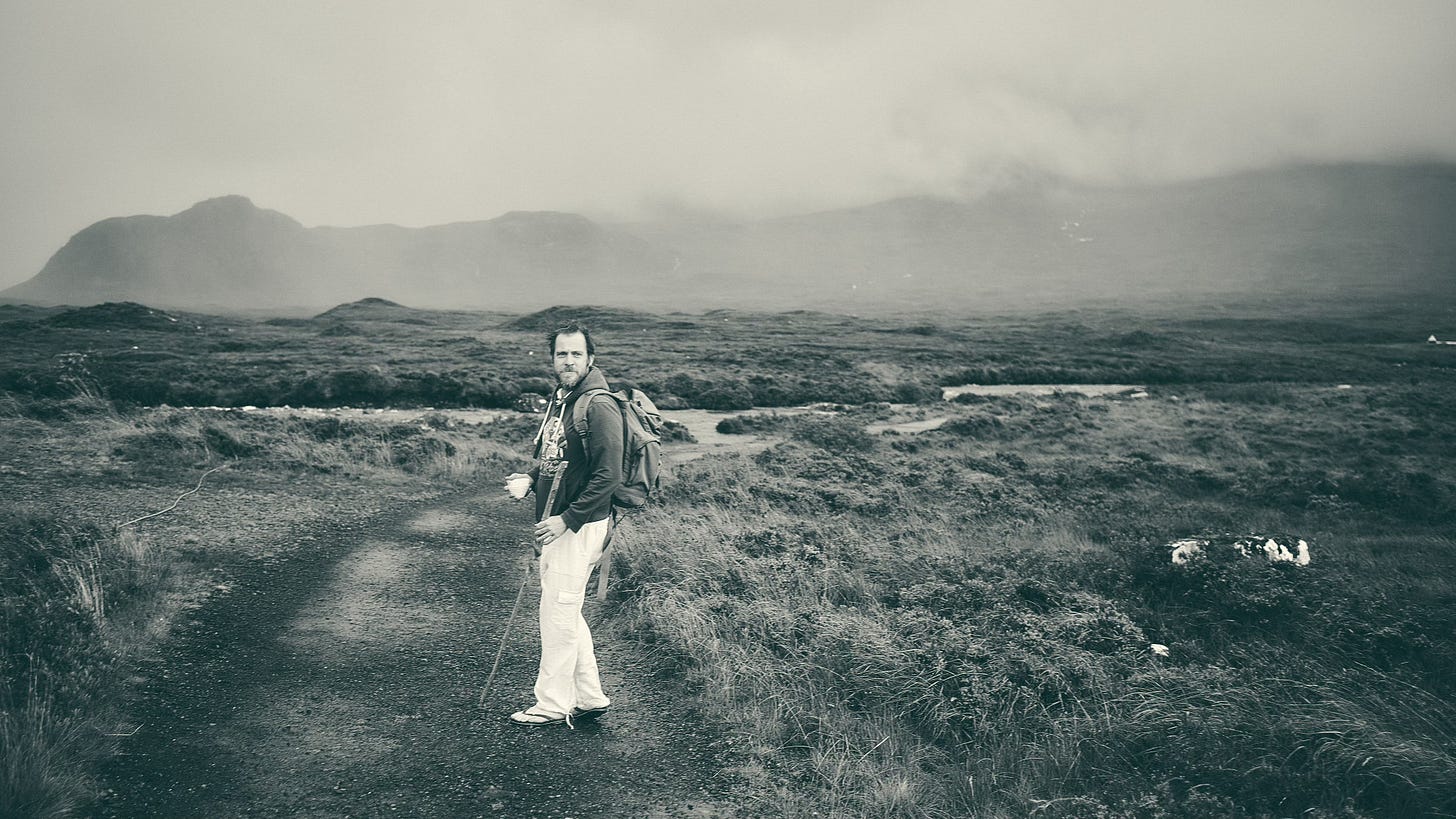
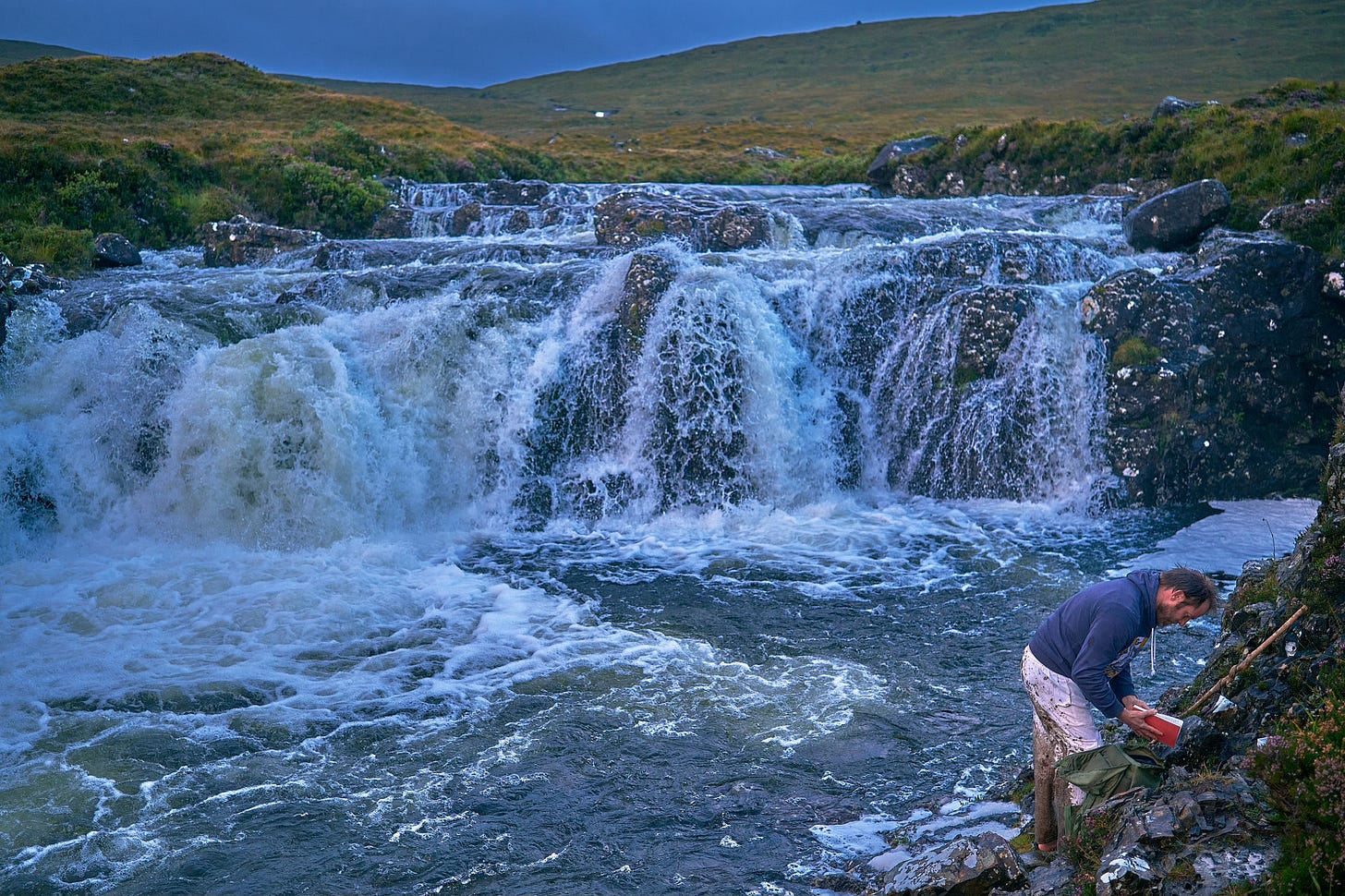
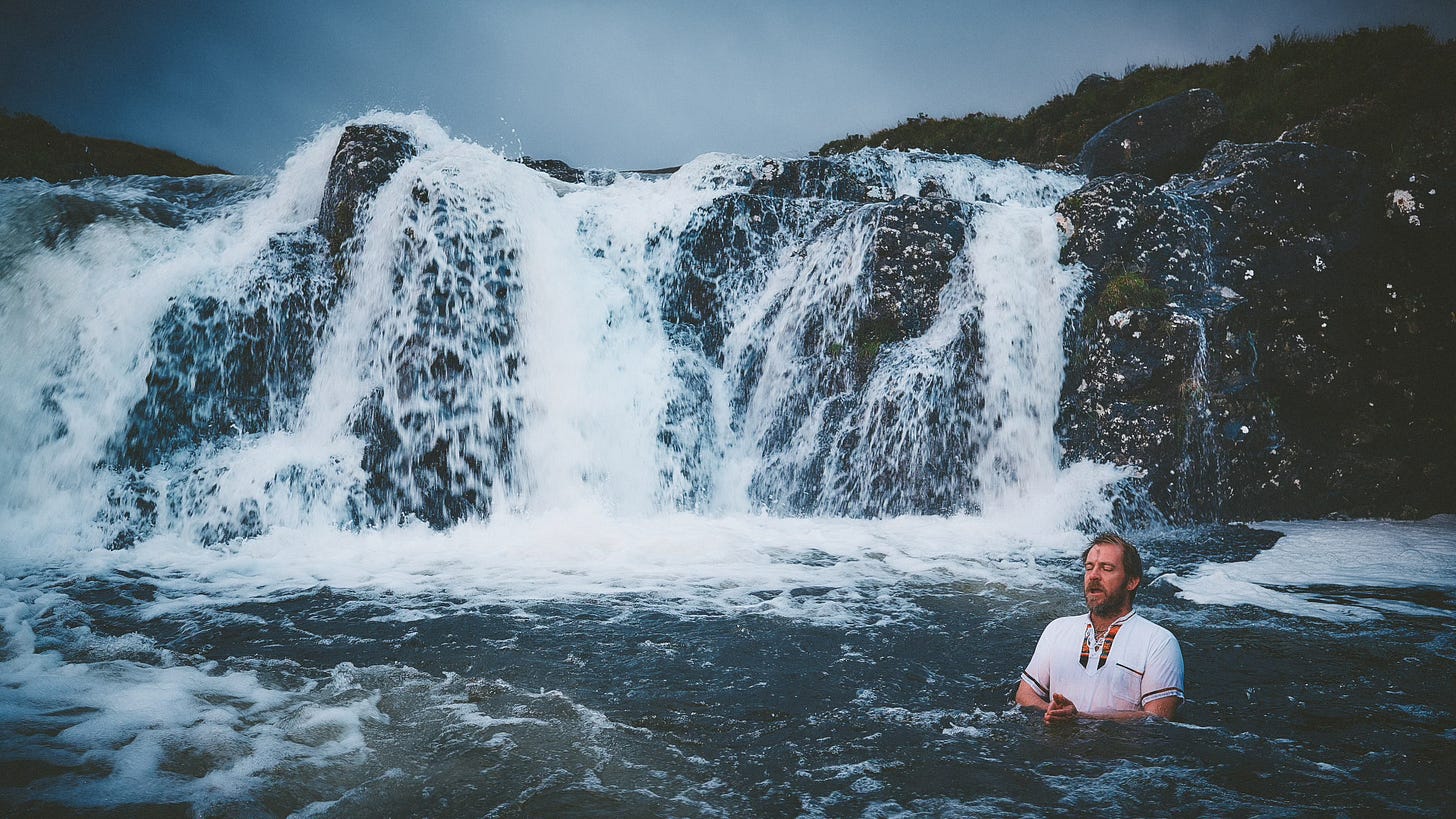

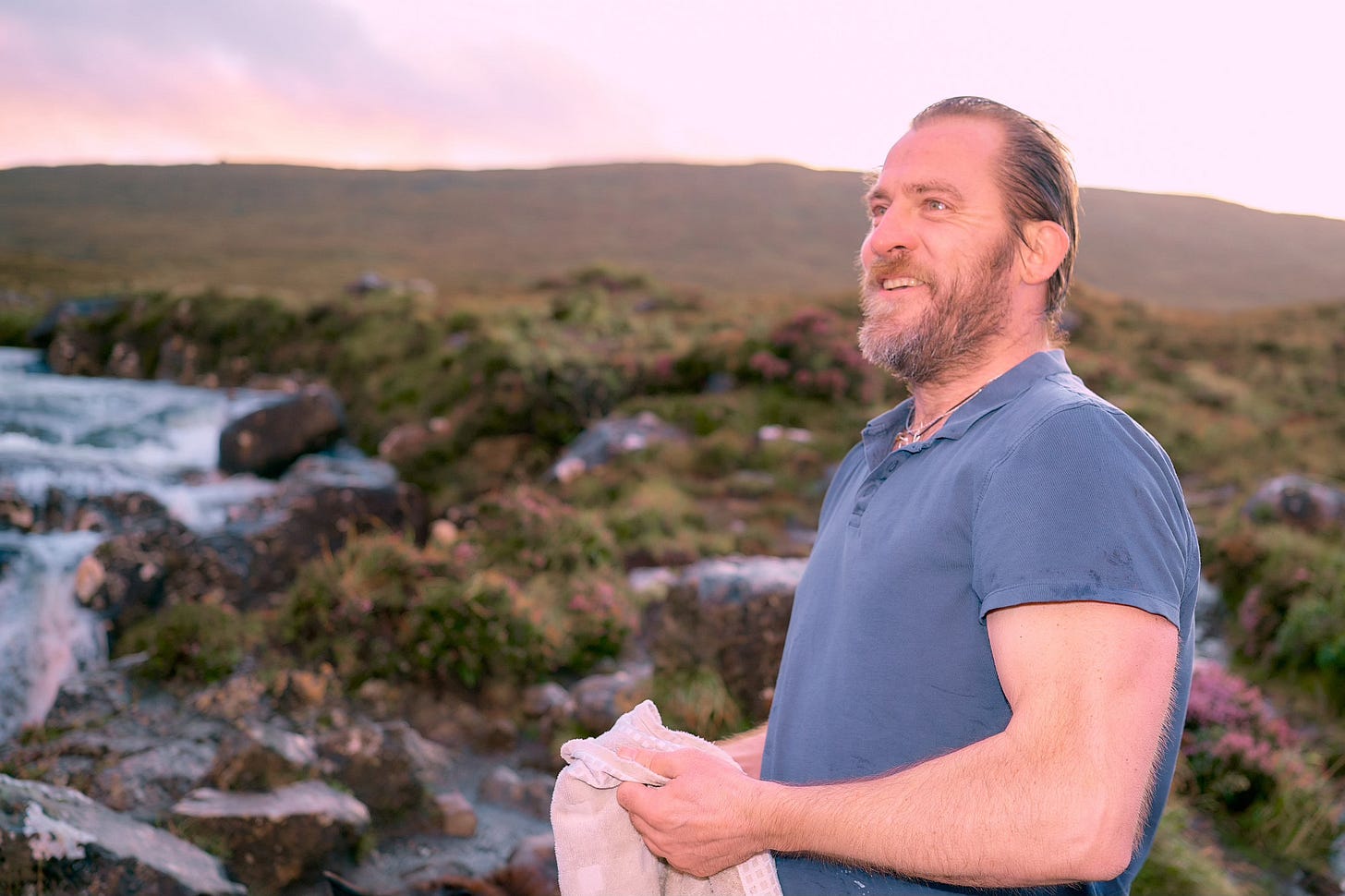
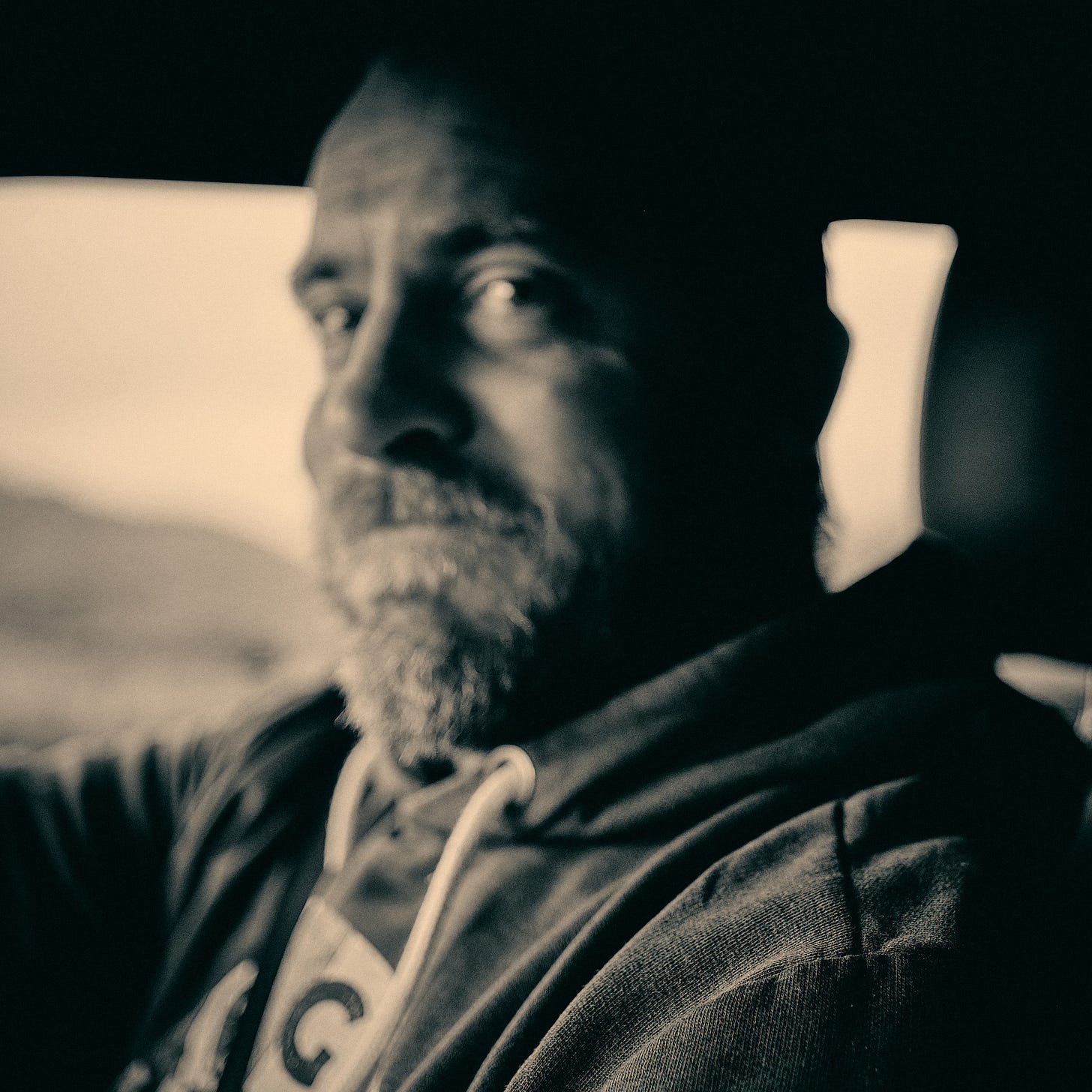

Wow! Martin, you are so gifted with thought and word. I loved reading this essay and will read it again. So much there. Thank you for your light on this new path we ( that are open to it) are navigating. Bless you 🙏
I love this, Martin! I love that you are willing to share your thoughts and perspectives with us. It is a very exciting journey we are on!